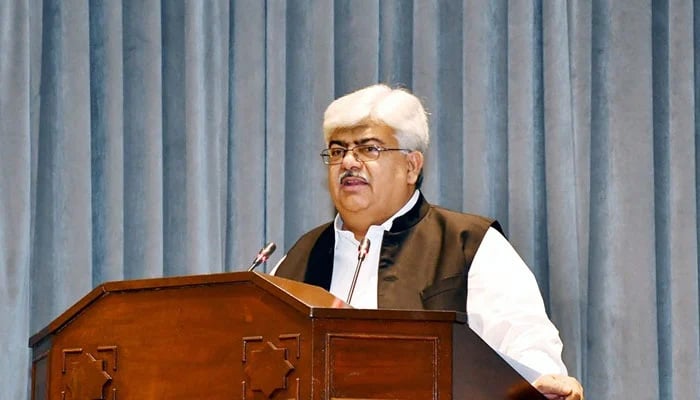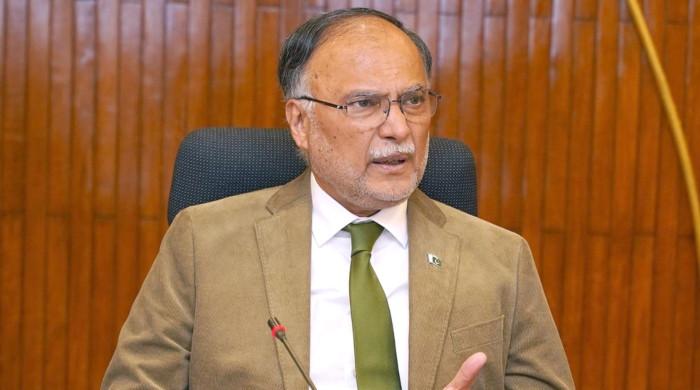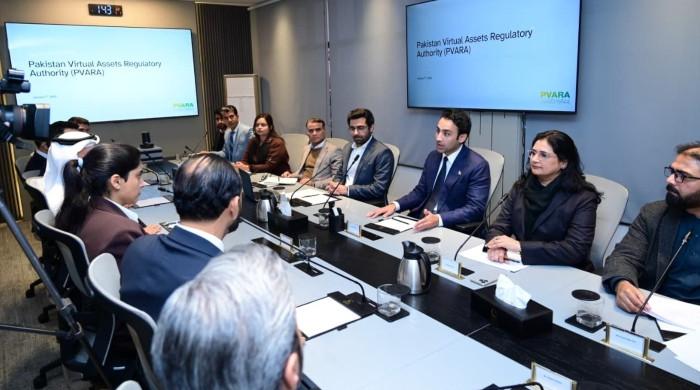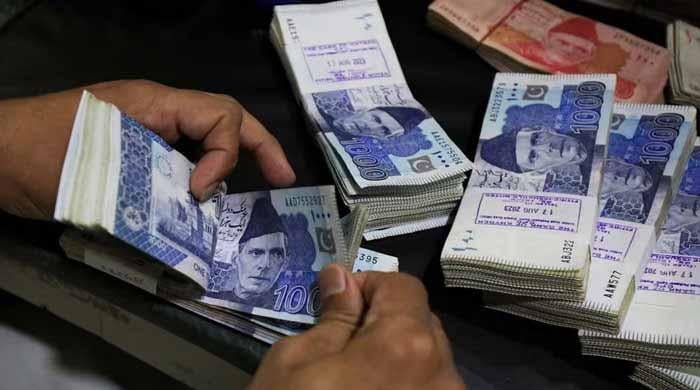FBR to boost tax revenues through enforcement measures, says Langrial
FBR chief hopes country would not face revenue shortfall in next fiscal year
June 11, 2025

- Poultry, beverage sectors to face enforcement measures: Langrial.
- "Priority list prepared to improve enforcement in different sectors."
- FBR chief admits salaried class bearing more tax burden in country.
Federal Board of Revenue (FBR) Chairman Rashid Mahmood Langrial said on Wednesday that the enforcement measures would be extended to other sectors after the country witnessed a positive outcome of similar actions in the sugar sector.
His statement came a day after the federal government unveiled the Rs17.57 trillion ($62.24 billion) budget. The budget targets higher revenues and a significant reduction in the fiscal deficit under International Monetary Fund (IMF)-backed reforms.
The government is targeting 4.2% GDP growth in fiscal 2026, up from 2.7% this year, which was revised down from an initial 3.6% as agriculture and large-scale manufacturing underperformed. Revenues are projected to rise over 14%, driven by new taxes and broadening the tax base. The fiscal deficit is targeted at 3.9% of GDP, down from this year’s 5.9%.
Speaking on the Geo News programme "Aaj Shahzeb Khanzada Kay Sath", Langrial called for boosting the tax revenues through enforcement measures.
The top officer said that the revenue board saw a roughly 39% increase in taxes from the sugar sector via enforcement measures, without any changes to the tax rate or any difference in sugarcane production.
"It was a test case for us [to make sugar mills comply with tax measures] in which we have succeeded," said Langrial. The 39% increase in tax proved that there was a compliance gap, he added.
The FBR chief said some sugar mills shut down production after 100% monitoring.
He detailed that the FBR used digital means and intelligence sources to monitor the sugar mills, besides strict monitoring of the revenue board's team.
He went on to say that enforcement measures would be taken against the poultry and beverages sectors in the upcoming fiscal year. He added that the FBR will hold foolproof monitoring of production.
The FBR prepared a priority list to improve enforcement in different sectors, he said. "The way the government is working this year, I am confident the mafia will not be able to succeed," claimed Langrial.
He also hoped that the country would not face a revenue shortfall in the upcoming fiscal year. The FBR chairman admitted that the salaried class was bearing more tax burden.
A day earlier, Finance Minister Muhammad Aurangzeb urged compliance with tax measures by different sectors.
The finance czar, speaking in the same programme a day ago, said that the government was prioritising structural reforms, enforcement measures, and relief for lower-income groups to ensure equitable fiscal growth.
The minister categorically ruled out the introduction of any new taxes, stating that the country must now rely on enforcement to increase revenue and move towards the target of a 13.5% tax-to-GDP ratio.
He said that enforcement will play a central role in plugging leakages, resolving tax litigations, and expanding the net, especially in the retail and wholesale sectors. He revealed that the government had already collected Rs390 billion through enforcement measures, a feat initially doubted by the International Monetary Fund (IMF).
"An almost similar enforcement-related revenue projection has been made for the next fiscal year, backed by the government’s performance track record," he added.
FinMin Aurangzeb presented the federal budget for fiscal year 2025–26 with a total outlay of Rs17.57 trillion, setting a 4.2% GDP growth target and overall federal expenditure was slashed by 7%.
He also highlighted that the budget for the upcoming fiscal year was the beginning of the strategy, especially chalked out to promote a competitive economy.









